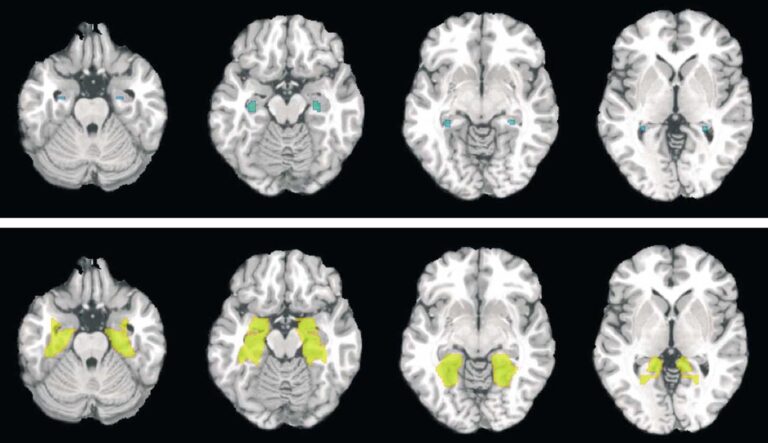TRANSIENT GLOBAL AMNESIA – SYMPTOMS, CAUSES, AND TREATMENT
Transient global amnesia is a sudden, temporary episode of memory loss that cannot be attributed to a more common neurological condition, like epilepsy or stroke.
During an episode of transient global amnesia, your memory of recent events simply vanishes, so you cannot remember where you are or how you got there. In addition, you might not remember anything about what is happening in the here and now. Consequently, you might keep repeating the same questions because you do not remember the answers you have just been given. You might also draw a blank when asked to remember things that happened a day, a month, or even a year ago.
The condition most usually affects people in middle or older age. With transient global amnesia, you do remember who you are, and you recall the people you know well. Episodes of transient global amnesia always improve slowly over a few hours. During recovery, you might slowly begin to remember events and circumstances. Transient global amnesia is not serious, but it could still be frightening.
 SYMPTOMS
SYMPTOMS
Transient global amnesia is identified by its primary symptom, which is the inability to form new memories and recall the recent past. Once that symptom is confirmed, ruling out other possible causes of amnesia is crucial.
These signs and symptoms should be present to diagnose transient global amnesia:
- Sudden beginning of memory loss, verified by a witness
- Retention of personal identity despite memory loss
- Normal cognition, like the ability to recognize and name familiar objects and follow simple directions
- Absence of signs indicating damage to a particular area of the brain, like limb paralysis, involuntary movement, or impaired word recognition
Additional symptoms and history that might help diagnose transient global amnesia:
- Duration of no more than 24 hours and usually shorter
- The gradual return of memory
- No recent head injury
- No signs of seizures during the period of amnesia
- No history of active epilepsy
Along with these signs and symptoms, a common feature of transient global amnesia includes repetitive questioning, usually of the same question — for instance, “What am I doing here?” or “How did we get here?”
WHEN SHOULD YOU SEE A DOCTOR?
Seek immediate medical attention for anyone who quickly goes from normal awareness of present reality to confusion about what has just happened. If the person suffering from memory loss is too confused to call an ambulance, call one yourself.
Although transient global amnesia is not harmful, there is no easy way to distinguish the condition from the life-threatening illnesses that could also cause sudden memory loss.

CAUSES
The underlying cause of transient global amnesia is not known. There appears to be a link between transient global amnesia and a history of migraines, though the underlying factors that contribute to both conditions are not completely understood. Another possible cause is the overfilling of veins with blood because of some sort of blockage or other abnormality with the flow of blood (venous congestion).
While the likelihood of transient global amnesia after these events is very low, some commonly reported events that might trigger it include:
- Sudden immersion in cold or hot water
- Strenuous physical activity
- Sexual intercourse
- Medical procedures, like angiography or endoscopy
- Mild head trauma
Acute emotional distress, as may be provoked by bad news, conflict, or overwork
Interestingly, high blood pressure and high cholesterol — which are closely associated with strokes —are not risk factors for transient global amnesia. This is probably because transient global amnesia does not represent blood vessel diseases of aging. Your sex does not seem to affect your risk, either.
The clearest risk factors are:
- Age – People age 50 and older have a greater risk of transient global amnesia than younger people.
- History of migraines – If you have migraines, your risk of transient global amnesia is significantly greater than that of someone without migraines.

COMPLICATIONS
Transient global amnesia does not have direct complications. It is not a risk factor for stroke or epilepsy. It is possible to have a second episode of transient global amnesia, but it is extremely rare to have more than two.
But even temporary memory loss could cause emotional distress. If you need reassurance, ask your doctor to go over the results of your neurological examination and diagnostic tests with you.
PREVENTION
Because the cause of transient global amnesia is not known and the rate of recurrence is low, there is no real way to prevent the condition.
DIAGNOSIS
Diagnosis of transient global amnesia rests on excluding more-serious conditions — stroke, seizure, or head injury, for instance — that could cause the same type of memory loss.
Physical exam
The process begins with a neurological examination, checking reflexes, muscle tone, muscle strength, sensory function, gait, posture, coordination, and balance. The doctor might also ask questions to test thinking, judgment, and memory.
Brain and imaging tests
The next step is testing to seek out abnormalities in the brain’s electrical activity and blood flow. Your doctor may order one or a combination of these tests:
- Magnetic resonance imaging (MRI) – This technique uses a magnetic field and radio waves to create detailed, cross-sectional pictures of the brain. The MRI machine could combine these slices to produce 3D pictures that might be viewed from many different angles.
- Computerized tomography (CT) – Using special X-ray equipment, your doctor obtains pictures from many different angles and joins them together to show cross-sectional pictures of the brain and skull. CT scans could reveal abnormalities in brain structure, including narrowed, overstretched, or broken blood vessels and past strokes.
- Electroencephalogram (EEG) – An EEG records the brain’s electrical activity through electrodes connected to the scalp. People with epilepsy often experience changes in their brain waves, even when they are not having a seizure. This test is generally ordered if you have had more than one episode of transient global amnesia or if your doctor suspects that you are having seizures.

TREATMENT
No treatment is required for transient global amnesia. It resolves on its own and does not have any known lasting effects.
If you or anyone you know is suffering from transient global amnesia Specialty Care Clinics will take care of your health and help you recover.
Call us on (469) 545-9983 to book an appointment with our specialists.
